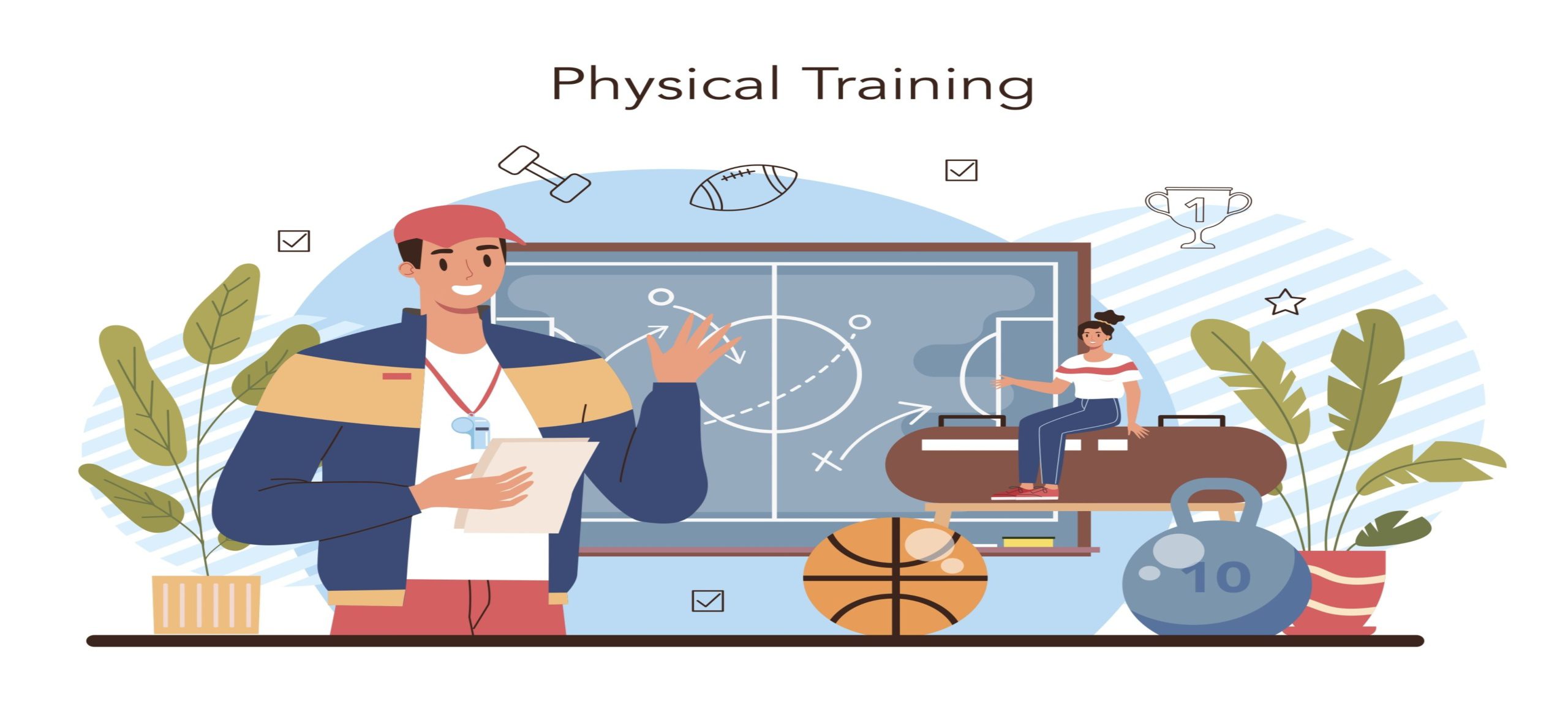As the days go by, the number of health and wellbeing coach is growing. People are increasingly seeking strategies and guidance to prioritise their physical, mental, and emotional well-being.
It’s because of social media coaching motivation, encouragement, and increased knowledge of mental health concerns that there is an increasing emphasis on health and well-being.
A wellness coach aids customers by providing guidance and assisting them. So, starting a wellness coaching business will be quite lucrative for you. Thus, you will assist others in achieving their actual desired result while your income increases.
Hence, in this blog, we will look at the top 10 ways to help you become one of the best health and wellbeing coaches. Moreover, we will also go into other topics, like how to become a life coach in the UK. Hence, in a way, we will show you how you can begin your journey in this lucrative career.
What is a health and wellbeing coach?
A health and wellbeing coach is a wellness professional at work. They aim to help people achieve their best physical, mental, and emotional health. They act as a guide for their clients. That is, by helping them choose a healthier lifestyle and navigate the difficult path to holistic wellbeing.
Moreover, these coaches are knowledgeable about a wide range of wellness topics. Some of the topics are mental health coaching, nutrition coaching, stress management, and general well-being practices.

Key Responsibilities of a Health and Wellbeing Coach
- Mental health coaching: They are one of the most important components of a health and wellbeing coach. They help people manage their mental health. Furthermore, a health and wellbeing coach aids clients in detecting and coping with stress, anxiety, and other mental health disorders. Hence, they help them balance their emotions and resilience. In a way, they are similar to mental health support workers.
- Nutrition coach: It is an essential component of total wellness. Nutrition coaches provide advice on food choices and meal planning. Moreover, they provide techniques for eating a healthy, balanced diet. Thus, this is especially important in an era when many people prioritise healthy eating.
- Wellness Coaching: A health and wellbeing coach’s attention spans various wellness disciplines. They help customers create and achieve health objectives. So, whether they have to do with weight control, fitness, sleep, or stress reduction.
- Motivation and Goal Setting: A health and wellbeing coach can assist clients in developing and achieving their health and wellness goals. As well as they support customers by being accountable and committed to making the positive changes they desire.
How can you become a health and wellbeing coach
As more individuals seek advice and help to live better lifestyles, demand for health and wellbeing coach jobs is rising. These roles aim to assist people in achieving their objectives for complete wellness—physical, mental, and emotional. So, health and wellbeing coaches act as mentors. Hence, they help their customers make changes to their lifestyles. Moreover, they find their way down the sometimes difficult route to holistic wellbeing.
Additionally, these positions can be found in various settings, including healthcare institutions, wellness centres, corporate wellness programs, and independent practitioners. Health and wellbeing coaches play a vital role in helping individuals improve their overall well-being. Thus, making these jobs rewarding and essential in today’s health-conscious world.
Moreover, these health and wellbeing coach jobs can be found in a variety of contexts. That can include healthcare facilities, wellness programmes for businesses, and individual practitioners. In today’s health-conscious society, health and wellbeing coaches play a crucial role in assisting people in improving their entire well-being. Hence, making these careers enjoyable and important.
So, now that we have looked at what a health and wellbeing coach is and the key responsibilities. We will then explore 10 ways you can become a health and wellbeing coach. Moreover, become one of the best in the field.
Read more to find out.
1. Qualifications and Education

You must have the necessary credentials and education to begin your journey to being a great health and wellbeing coach. Your competence as a coach depends on the information and skills you get through education and training. Thus, a strong foundation is necessary for a sturdy building.
- Why Qualifications Matter: To stand out in the competitive field of health and wellbeing coaching, you must have a strong educational foundation. Hence, this education gives you a foundational grasp of health, wellness, and the human body. all of which are important components of your coaching practice.
- Health and wellbeing coach Programmes: Look for programmes that specialise in health and wellbeing coaching. These seminars cover important topics including diet, psychology, fitness, and stress management. Thus, they provide you with the knowledge you need to help your clients in a proper manner
- Ongoing Education: The field of well being coaching is dynamic Consider attending workshops, seminars, and webinars related to health coaching. Hence, this continuous learning process can keep your knowledge fresh and make your coaching strategies more effective.
- Certifications: Obtaining recognised certificates provides legitimacy for your coaching job. Thus, when getting advice from a professional coach, clients tend to feel more assured as you have a certificate to show them.
2. Certification
Becoming a certified health and wellbeing coach is an important step towards success. This certification not only provides your practice legitimacy but also instils trust in your clients. So, whether you’re looking for mental health coaching, wellness coaching, or a different speciality. Thus, the right certification may have a significant influence.
- Professional Recognition: Earning a recognised certification is equal to wearing a badge of honour in the coaching community. Hence, it demonstrates that you have commitment and skill for both future clients and colleagues.
- Credibility and Trust: When customers seek the services of a health and wellbeing coach, they want to know that the advice they receive is reliable. Thus, certification gives this confidence. That will increase the likelihood that clients will trust your competence.
- Specialisation Opportunities: Certifications might allow you to specialise in many areas. Some of them include mental health coaching, wellness coaching, nutrition coaching, and many more. Depending on your interests and professional goals, you can seek any of them. Hence, these specialisations can help you expand your customer base and make you more desirable in certain areas.
3. Specialisation Areas

Defining your speciality areas is one of the keys to success as a health and wellbeing coach. This personal touch will allow you to connect with your consumers on a deeper level. Thus, you will be able to provide specialised advice that makes a difference in their lives.
- Discovering Your Specialisation: When it comes to specialisation, you have a lot of alternatives as a health and wellbeing coach. The choice should be up to you and your interests, as well as the specific needs of your target market. Here’s a more human approach to making this important decision
- Pay attention to your passions: Consider what thrills you about health and wellness. Is it mental health coaching, assisting people in finding balance and peace in their lives? Or are you inclined towards nutrition counselling, advising customers on healthy eating habits? Thus, be honest with yourself and pursue what you will enjoy.
- Consider your advantages: Consider your coaching talents. Do you want to give excellent coaching motivation? Can you relate to and connect with consumers who have stress problems or emotional problems? If you can understand your natural skills, you will be able to use them. Hence, it can assist you in selecting the appropriate specialisation.
- Market Research: Examine the market’s demands in your location or online. What are they looking for? Where is there a service gap? This might direct you towards a marketable specialisation and the demand you need.
- Engage in talks with possible clients: Have talks with possible clients or persons who are currently in the sector. What are the most prevalent problems they experience, and what type of help do they need? Their advice might be useful and invaluable for you when it comes to selecting a specialisation that will appeal to your target audience.
4. Coaching Techniques

To become an outstanding health and well-being coach, you’ll need a toolkit full of successful coaching approaches. Hence, this approach will help you connect with your customers. Moreover, you will be able to encourage them and aid their journey to greater health and fitness.
- The Art of Coaching: The skills you use as a health and wellbeing coach are the heart and soul of your practice. These strategies, like painting on a canvas, shape the individual trip you take with each client:
- Active Listening: Consider a customer who is revealing their difficulties. Your ability to pay attention without passing judgment may assist individuals in opening up. Ask open-ended questions to delve further into their concerns. All sorts of coaching, including mental health coaching, need this competence.
- Motivational Interviewing: It is a powerful strategy that inspires people to explore their desire for change. You motivate clients to take charge of their path by asking probing questions. Hence, it will help them to understand their reasons for wanting to improve their wellbeing
- Goal Setting: Assist your clients in establishing measurable objectives. In coaching for mental health or wellbeing, this could encompass learning how to cope with stress, worry, or sadness. It could involve creating a balanced diet through nutrition coaching. Setting realistic goals helps you keep your clients on track.
- Strategies for Behaviour Change: Recognise that behaviour change can be slow. So, you can introduce methods and ideas that will assist your clients in sustainably changing their lifestyles. That can be whether you are providing coaching for mental health or nutrition.
5. Building Communication Skills
In various activities, including making calls, sending emails, assessing clients, and holding meetings, effective communication skills are essential. For instance, wellness coaches meet with both individuals and groups, providing direction and feedback and creating unique wellness programmes.
People who pay close attention to their clients are better able to comprehend their demands and put ideas into practice. Therefore, whether you focus on mental health coaching, wellness coaching, or any other wellness professionals at work, improving your communication skills is crucial.

Your customers must be willing to communicate openly with you about health and wellbeing coaching. Thus, gaining trust will be easier if you have a positive connection and are persuasive with your words. Here, how you communicate will be important. So, here are a few characteristics of an excellent health and wellbeing coach:
- Be non-judgmental in your behaviour
- Listen attentively and actively.
- Be curious, but be courteous about it.
- Ask questions, but be sure you time them appropriately.
- Show off your warmth, friendliness, generosity, and empathy.
- Explain complicated ideas in basic, straightforward words.
6. Ethics and Professionalism
Professionalism is the most crucial coaching competency. For their time, effort, and dedication, clients should feel valued.
You are likely to lose a client’s confidence in a coach-client relationship by showing up late for sessions, talking impolitely, or skipping over crucial tasks for your client. Additionally, treat your clients as you would like to be treated. To follow up on promised action items, be punctual, professional, and prompt.
- Upholding Ethical Standards: It is crucial to uphold the highest ethical standards and professionalism in your work as a health and wellbeing coach. These concepts need to direct your practice. Hence, whether you specialise in mental health coaching, wellbeing coaching, or nutrition coaching.
- Confidentiality: Respect your client’s privacy by keeping everything 100% secret. Without their permission, no one should ever reveal their personal information or challenges.
- Informed Consent: Make sure your clients are aware of the coaching process, the scope of your offerings, and the possible results. Before starting the coaching partnership, they must give their free and informed permission.
- Cultural sensitivity: Recognise cultural differences. Moreover, ensure that your coaching is inclusive and respectful for people of all backgrounds and points of view.

7. Networking and Building a Client Base
Becoming a successful health and wellbeing coach requires networking and growing your client base. Regardless of whether your area of expertise is nutrition, mental health, or wellbeing coaching. Here are some key points:
- Professional Connections: Make contact with local wellness organisations and other specialists. Work together with nutritionists, mental health specialists, and trainers in physical fitness. These contacts may result in recommendations and cooperative ties.
- Community Engagement: Engage in active community building in your area or online. Take part in lectures, workshops, and activities related to health and wellbeing. Meeting prospective clients and other experts in your area in this way proves to be beneficial.
- Word of mouth: Encourage your contented customers to recommend you to their relatives and friends. Increasing your customer base through word of mouth may be quite effective.
8. Online Presence and Social Media
Another way to increase your presence and network is via online or social media. Your online presence will be one of the best methods for you to draw customers and establish your credibility as a coach. So you must devote effort to developing it so that it portrays a professional image.

It’s important to communicate with potential customers on these platforms, which goes beyond simply setting up a website and social media profiles.
- Establish your Internet presence : Your internet presence is a potent tool for developing your brand and drawing customers. It can be for whether you specialise in mental health coaching, wellness coaching, or any other area. Utilise it to show your knowledge. Hence, you can develop a connection with your target market and build your reputation in the field of health and wellbeing coaching.
- Professional website: Any contemporary business must have a website, which will probably become your primary point of contact for inquiries from customers and new prospects. Moreover, your online storefront should be well-designed and user-friendly. It should clearly state your area of expertise, your services, and your contact information. Thus, to improve your online presence, ensure that it is search engine optimised.
- Engaging social media: social media platforms need constant, active interaction. Inform your audience by sharing advice, success stories, and valuable information. It’s a chance to prove your expertise and engage with potential customers. This might enhance your profile and help you become known as a thought leader in the health and wellness sector. It could be better for a small business to focus on one or two platforms, like Facebook and Instagram. rather than experiencing stress by spreading your material across many. Hence, you should choose platforms that can target the audience’s online behaviours and interests and where they are most likely to be active.
- Content Sharing: Share useful information often on your blog or social media. Share articles, videos, and infographics on coaching for mental health, wellness, or your preferred topic. Thus, by doing this, you establish yourself as an authority.
Nowadays, you can create an on-brand website with less effort by utilising a range of user-friendly platforms. That includes some like Squarespace, WordPress, etc. Hence, it provides expert and scalable design for you.
Or, it may be easier and more effective to collaborate with a marketing agency or independent contractor who can do everything for you. One of the websites you can check out is russkinbright.com. They can provide every kind of assistance and service in developing a website that is unique to you and your business. Moreover, write an exclusive, special type of content for your website or blog, or do social media marketing for you.
9. Continuous Learning
 The process of growth and self-improvement is continual as one strives to become the finest health and wellbeing coach. Your commitment to lifelong study will guide you towards excellence.
The process of growth and self-improvement is continual as one strives to become the finest health and wellbeing coach. Your commitment to lifelong study will guide you towards excellence.
- Stay Up-to-Date: Be sure to keep up with industry trends. It can be whether they pertain to coaching for mental health, coaching for wellness, or other specialisations. As well as to stay current, read books and academic papers, and go to workshops.
- Peer Collaboration: Collaborate with other coaches and members of your peer group. Discuss best practices, exchange stories, and gain understanding from one another. Hence, working together with others is a great way to learn new things.
- Feedback Reception: At any stage of its development, but in particular, if you’re getting started, feedback is a useful tool for any organisation. It may provide you with insight into your coaching effectiveness and point out growth opportunities. Thus, enabling you to have a better understanding of your clients. Moreover, it offers a chance for development and advancement. Be sure to pay close attention to any comments you receive. Additionally, be as adaptable as you can, solve any problems, and work persistently to enhance any areas that need it.
Thus, continuous learning is a commitment to provide your clients with the best service possible, not a professional duty. Hence, this path of self-improvement guarantees that you will continue to be a valued and successful health and wellbeing coach. That can be regardless of whether you are concentrating on mental health coaching, wellbeing coaching, or another specialisation.
10. Balancing Health and Wellbeing as a Coach
Maintaining your health and wellbeing is crucial if you want to be an effective health and wellbeing coach. This dedication on your part is not only a testament to your values but also crucial to your continued success in the industry. It’s easy to become so preoccupied with leading others that you forget about your own needs. The following are crucial considerations:
- Self-Care: Put yourself first and set an example for your customers. Thus, show that you live what you preach by engaging in regular exercise, a healthy diet, and stress management.
- Work-Life Balance: Make an effort to maintain a good work-life balance. Overworking can cause burnout and have a negative impact on your capacity to coach.
- Organisation and time management: Wellness coaches are often dealing with several individuals and groups, so they need to manage their time well. organising client files, meeting new clients, arranging coaching sessions and follow-ups, and carrying out other administrative duties. Thus, these are all responsibilities shared by many coaches. If you’re thinking about working for yourself, your organisational and time management abilities can also ensure that your business runs well.
- Mindfulness: You become more self-aware as a result, making intentional decisions as opposed to going through your days on autopilot. Additionally, emotional intelligence—the capacity to recognise and control our own emotions so that we may communicate with others more empathically—requires mindfulness as a condition. Your self-awareness and emotional quotient will increase thanks to an executive wellness coach. Thus, allowing you to preserve harmony and prevent burnout. So, to learn more, you can take a mindfulness course, which will be beneficial for you.
- Confidence: Learning new things often, building up experience, and observing the benefits you provide for your customers are all important components of developing coaching confidence. It’s important to have the humility to keep getting better and changing your strategy as well as self-assurance. So, confidence as a coach is a sign of your dedication to serving others and your faith in the transforming potential of health and wellbeing coaching.

Conclusion
To conclude, choosing a career as a health and wellbeing coach requires a strong desire to make a positive difference in people’s lives. The need for physical, mental, and emotional wellbeing is growing, and as a wellness coach, your job is more crucial than ever.
Additionally, keep in mind that becoming the best health and wellbeing coach is all about constant growth rather than perfectionism. Hence, expertise, professionalism, and a desire to help others achieve holistic health are all required.
Moreover, as you begin your coaching career, let your desire to help others motivate you to achieve your full potential. Maintain your commitment to lifelong learning, which will help you become the greatest health and wellbeing coach you can be. Here is where your trip begins, and the possibilities are endless.
Now that you can prepare yourself and know how to become a life coach in the UK. Why not check out Mental Health Support Workers to get more ideas and knowledge about them or health care and support workers? Hence, you will know how they integrate into your field.
You can check out UK employment law to get more ideas on employment law for health coach jobs.




